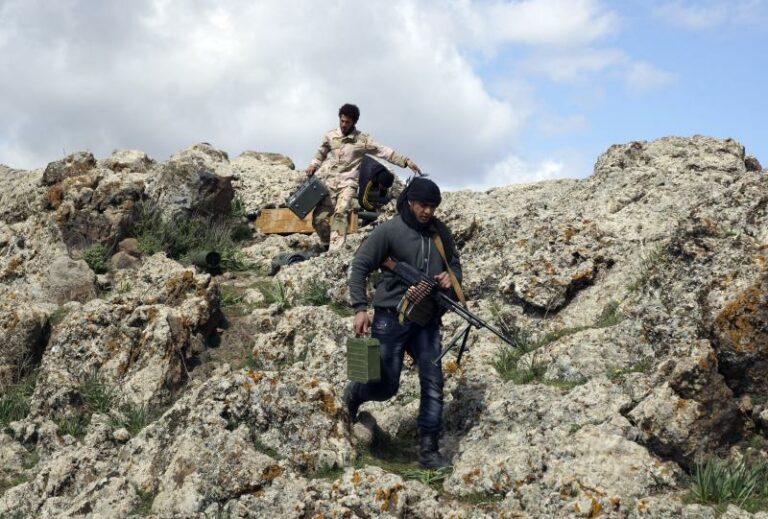What’s more, strengthening the rebels’ position in the south may convince the half million Druze in the southwestern city Sweida to turn away from the Assad regime. Many Druze leaders have already called for distancing the ethnic group from Assad, yet most Druze seem reluctant to sever ties with the regime so long as it still holds the upper hand.
Washington has paid little attention to southern Syria. This is a mistake.
That may change, however, if a better armed and more unified rebel coalition emerges in the region. In recent years, the Druze and the rebels have overcome mutual suspicions and agreed not to attack one another, and the rebels are careful to avoid the Druze Mountain.
The United States can help this process along. In 2013, the United States set up aMilitary Operations Command in Amman, Jordan, to channel weapons and cash to rebels in the south. But Washington’s assistance to those rebels has never reached the level of its support for groups in northern Syria and in the Euphrates Valley.

Of course, Washington’s first priority should be to destroy ISIS in Aleppo and capture its capital, Raqqa, in northern Syria. But it should also consider complementary support in the south, where the rebels already enjoy numerical superiority over both ISIS and Jabhat al-Nusra.
If Washington provided more weapons to the Southern Front, which is the most powerful rebel group in the region, for example, the United States and its allies could coordinate a successful offensive against ISIS in the area, where the group has so far resisted defeat.
Indeed, ISIS controls the southwestern corner of the Syrian Golan. The rebels have launched several offensives against ISIS’ main affiliates in the region, the Yarmuk River Martyrs Brigade and the smaller al-Muthana. These skirmishes have prevented the groups from expanding their territory eastward, yet they have served little purpose beyond containment.
Meanwhile, the affiliates are growing stronger. The Yarmuk River Martyrs Brigade, which emerged in 2012, has evolved into a full-fledged ISIS branch that receives financial support from ISIS’ self-proclaimed caliph, Abu Bakr al-Baghdadi. The core ISIS group has even replaced some of the affiliate’s commanders with leaders from Raqqa. The Yarmuk River Martyrs Brigade has some 700 fighters, but it is constantly growing. Along with al-Muthana, it controls parts of Syria’s borders with Jordan and Israel and is thus capable of striking the two neighboring states if it decides to broaden the scope of its hostilities. If Washington provides the rebels with weaponry and funding, however, they may be able to overpower the affiliates.
If the United States looks to southern Syria before it is too late, it could play a decisive role in turning the tide of the war.
It would be more difficult for the rebels to eliminate Jabhat al-Nusra, which has 1,500 fighters and controls larger sections of the south. The group also frequently collaborates with non-jihadist groups in the area, making it difficult for the rebels to mount a sustained offensive against it. But even here, with help from Washington, the rebels can make inroads. They should concentrate on luring as many Nusra fighters as possible away from al Qaeda by promising them financial aid and military equipment. The majority of Nusra’s fighters belong to local tribes that may be receptive to offers of assistance. In this way, rebel groups can gradually undermine much of Nusra’s clout in the region.
If Washington were to support such efforts, it might also encourage Jordan and Israel to do the same. What’s more, U.S. assistance in the south would strengthen Washington’s position vis-a-vis Russia in the ongoing negotiations to secure a stable cease-fire in Syria, as a stronger rebel presence there would further erodeAssad’s precarious hold on the region. So far, Russia has seemed reluctant to get involved in the south, apart from a few days of bombing near the southern town of Sheikh Maskin.
If the United States looks to southern Syria before it is too late, it could play a decisive role in turning the tide of the war. As U.S. Secretary of State John Kerry’s efforts to bring about a stable cease-fire keep hitting obstacles, now is the perfect time for Washington to revisit its strategy in the south. Though a military stalemate may persist in the north, progress may be possible elsewhere.

